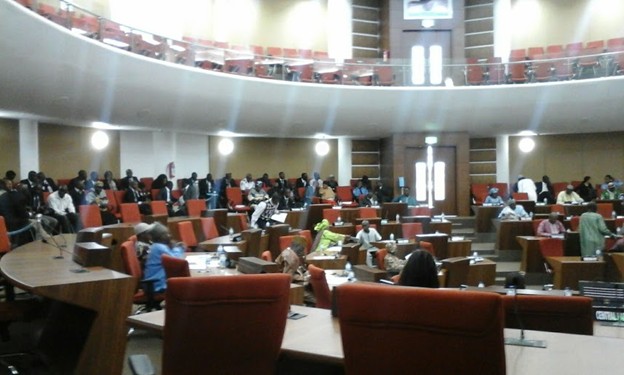
What was meant to be a smooth consideration of the Judicial Officers’ Bill quickly turned into a stormy showdown, after members questioned a controversial letter from the Ministry of Justice indicating that judges had already begun receiving the revised salaries since June despite the law not yet passed.
Minority Leader Hon. Alhagie S. Darboe of Brikama North was among the first to raise alarm, demanding clarity on how payments could be made retroactively without parliamentary approval. “Can the Minister explain how payments have already been effected before the Bill is even approved? What mandate does the President or anyone else have to authorise this without Parliament?” Darboe quizzed, warning that such actions amounted to a constitutional violation.
His concerns were echoed by several MPs, including Hon. Alhagie Mbowe, who went further to accuse the Justice Minister of misleading the House. “The cover letter clearly states that since June, judges have been paid the full revised salaries. Yet the same Minister tells us to disregard that letter. Is he trying to misinform this House?” Mbowe asked pointedly, sparking loud murmurs across the chamber.
The minister for Justice attempted to douse the flames, insisting that the government had dropped its initial plan to insert a retrospective clause and urging lawmakers to treat the Bill on face value. He maintained that any payments made before the Bill’s passage would be “regularised through other means.”
But the explanation only deepened mistrust. Some MPs openly accused the Ministry of Justice ironically the custodian of the law of being the first to flout it. “It is a disappointment when those entrusted to uphold the Constitution are the ones violating it,” one lawmaker fumed, warning that Parliament must not rubber-stamp what many described as an “illegal” implementation.
The debate also exposed divisions over the role of the Finance Minister. While some members argued that it was irrelevant to question where the money for the salary hikes would come from, others insisted the Finance Minister should have been present to justify the funding source. “We cannot put the cart before the horse,” one MP cautioned. “Before we approve, we must know where the funds are coming from.”
MPs also pointed to inconsistencies between the Bill’s attached salary schedule and the figures reportedly being paid. While the Ministry brushed this off as a “clerical error,” members were not convinced. “This goes beyond error. This is a deliberate attempt to confuse Parliament,” charged one member.
As the arguments escalated, the Speaker struggled to restore order, repeatedly urging MPs to focus on the Bill clause by clause. But the atmosphere remained tense, with some lawmakers calling for the Bill to be referred back to committee for proper scrutiny rather than being “rushed through under pressure.”
Despite the uproar, there was broad consensus that judicial officers deserve better conditions of service. However, the controversy has left Parliament facing a thorny dilemma whether to approve the Bill and retroactively legitimise what some called an unconstitutional move, or to reject it and force the executive to answer for alleged violations.
The bill was finally considered with amendments.





